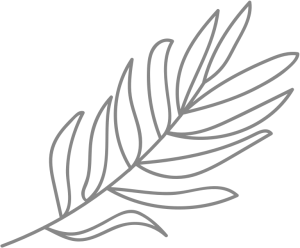On a cloudy winter day, there’s nothing better than seeing the bright yellow flash of a goldfinch or hearing the sweet song of a Swainson’s thrush. If you’re hoping to attract more birds to your yard this fall and winter, Pam Borso, long-time member and current volunteer coordinator for the North Cascades Audubon Society, shares some tips for how to transform your yard into a haven for birds.
DON’T RAKE LEAFLITTER
“Being a lazy gardener and letting your yard be messy is actually okay for wintertime,” Borso says. Stray twigs, leaves, and dead flower heads can provide a good habitat for insects, which in turn serve as a food source for birds. If you do wish to clear your yard, use the leaflitter to cover your flower beds which will provide cover for insect pupae as well as your dormant flowers.
BE INTENTIONAL IN THE SEEDS YOU PROVIDE
Different birds like different seeds, so don’t buy commercial mixes. Consider using shell-less seeds, as the leftover casings might attract rodents. Suet—seeds mixed with lard or peanut butter—provides necessary fat for woodpeckers, chickadees, and sparrows. Remember to clean and restock your feeders regularly!
COMMIT TO YOUR HUMMINGBIRD FEEDERS
If you start feeding hummingbirds, it’s important to continue feeding them throughout the winter. Anna’s Hummingbirds, the species found year-round in our region, expend energy traveling to your feeder, so don’t leave them empty-beaked or let the nectar freeze! Be sure to also clean the feeder regularly, as fungus is harmful to hummingbirds.
PROVIDE A HEATED BIRDBATH
Birdbaths provide an important water resource and attract birds year-round. Having one with a heater prevents freezing during the cold winter months. Cleaning the bath regularly is a must for the health of the birds.
PLANT NATIVE SHRUBS AND TREES WITH WINTER BERRIES
Choose shrubs and trees that provide winter berries such as serviceberry, Twinberry, Indian Plum, Salal, chokecherries, and Oregon grape. It’s important that the plants in your yard are native, since local birds, plants, and insects co-evolved together. Robins especially appreciate berries!
BONUS: DITCH THE LAWN!
One of the best things Borso recommends for the overall health of the environment is to get rid of your lawn. Grass lawns use excessive amounts of water and often require chemical fertilizer and pesticides to maintain. For a nicely landscaped and natural yard, use wood chips instead. If you’re interested in learning more about birds, the North Cascades Audubon Society meets at 7 p.m. on fourth Tuesdays at Old City Hall in Bellingham. To become a member or find events, visit northcascadesaudubon.org.


